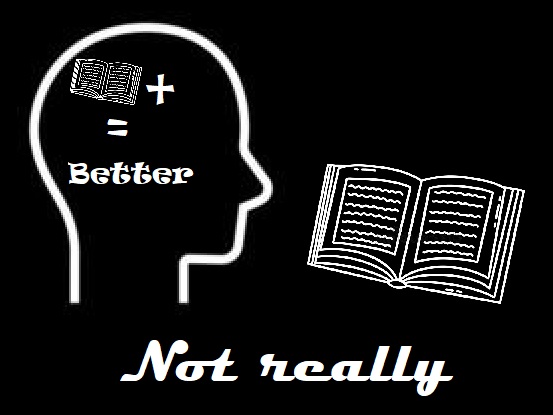The Problem with Head Canon
By Anthony Casperson
3-9-20
When we don’t like the direction that a movie, TV series, or novel is going, sometimes we take it upon ourselves to think up our own direction for the story. (And in more extreme cases, some actually write their own versions, making a fan fiction story.) This self-made direction is called our personal head canon.
For a slightly nuanced—because I have an older version of canon, which has been written over by the “official” keepers of the story, to rely upon instead of making it up on my own—version of head canon, I have an example. If someone should ask me if I like Star Wars, I’ll say that I absolutely adore the entirety of the complete saga. And then point to my blu-ray box set with only the Original and Sequel Trilogies in it, which has emblazoned upon it the words: The Complete Saga.
I know that a Disney-fied trilogy exists. One which overwrote decades of books, comic books, and video games in order to exist. But because I scoffed through the first movie and have yet to see more than clips of the other two, I don’t consider this “official” trilogy to be canon to the story.
While I could go on for many more paragraphs about my feelings regarding this topic, it would divert us away from my purpose for this blog. That purpose being the idea about reading something other than what the authors of the words meant through those same words.
The idea of head canon on its own isn’t a problem. It can be a problem if we force others to accept only our version of the story. (I don’t have a problem with people who legitimately like the Disney trilogy.) Head canon can also be a problem when it goes beyond mere stories for entertainment, and moves to more important writings. Such as the bible.
This past week, I encountered two separate preachers—both of whom I still appreciate and will continue to listen to—speak on passages of the bible and say things about them that have nothing to do with what the words actually say. For instance, one spoke about tithing while using Exodus 20. (For those keeping track, the Ten Commandments have absolutely nothing to do with tithing.)
During both sermons—which I listened to on the same day—I literally spoke out loud the words, “Quit making the bible say what you want it to say, and instead say what the bible wants you to say.” I learned this basic principle in my introductory homiletics (“Preaching 101”) class. The way my professor put it was, “The passage will let you know how it wants to be taught.”
Those of us who teach and preach the bible should never approach a passage with a structure, idea, or perspective on how we want to teach God’s word. (I can’t tell you how many times I’ve felt like I’ve hit a wall in writing my sermon, until I realized the passage didn’t want to be taught that way.)
This type of failing to teach how the passage wants to be taught is most easily possible when we move away from an exegetical method—going through the whole book or chapter—and instead use a textual or topical approach. Both of which narrow the focus to a single verse or a handful of unrelated single verses. That’s not to say that either of the latter two approaches are wrong, just that there’s a more necessary need for concern when we use either method. (A concern that I took heartily in this more topical blog.)
My concern for the preaching of two different sermons that didn’t say what the passages said, nor how the words show they should be taught, is this. We who teach/preach the bible are held accountable for what and how we teach our fellow brothers and sisters (Heb. 13:17). This is because what we teach—and how we show to approach the bible—leads others to believe that’s the right interpretation of the bible. And the method we choose to show those whom we teach then becomes a “proper” method for how to study the bible.
As an example, that preacher who used the Ten Commandments to teach topically about tithing did so because he’d heard the same interpretation from a scholar he highly regarded. What we teach gets taught by others to their own audiences. And thus the bad theology and methods of interpretation are passed on to another generation, until it all gets muddied into possible heresy. (Just to be clear, teaching about tithing from the Ten Commandments is nowhere near heresy, regardless of how wrong it is. But you get my point.)
Instead, we should teach and preach well the words of the bible so that we can pass them on to those whom we teach. Like how Paul tells Timothy to teach the truth that his mom and grandma taught him.
In 2 Timothy 3:14-17, Paul reminds Timothy of his own rearing in biblical truth in order to remind the younger man what the purpose of the Word of God is. And I think the words themselves say it clearly enough, so I’ll just let Paul’s words speak. “All Scripture is breathed out by God and profitable for teaching, for reproof, for correction, and for training in righteousness, that the man of God may be competent, equipped for every good work” (2 Tim. 3:16-17, ESV).
The purpose of God-breathed truth found in the bible is to equip the person of God for every good work that God has for them.
It is the word of God itself that’s profitable. Our made-up head canons for the words only obscure the ability for we followers of Jesus to do the good work set for us. And may lead us into actual heresy, depending on the extent of the obfuscation.
So, as we approach the bible, both for our own personal study of it and if we are the ones to teach/preach it, let’s quit making the bible say what we want it to say, and instead say what the bible wants us to say. Trust me, if we listen to the words—and the voice of God behind them—we’ll hear the truth in the true way.



